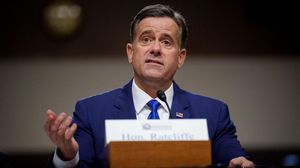Britain is set to become the first country worldwide to ban the use of artificial intelligence (AI) tools for creating child sexual abuse imagery, marking a significant step toward protecting vulnerable children from exploitation. This initiative originates from growing concerns about the use of AI by online predators and is part of broader regulations due to the upcoming EU AI Act.
Possessing, creating, or distributing explicit images of children has long been recognized as illegal across England and Wales. The new legislation is particularly aimed at preventing the use of AI techniques to "nudeify" real-life images of children, responding to the alarming rise of reported incidents of AI-generated abuse material. The Internet Watch Foundation reported nearly a five-fold increase in such explicit images being circulated online, particularly during 2024.
Yvette Cooper, Britain’s interior minister, emphasized the urgency of the legislation, stating, "We know how sick predators' activities online often lead to the most horrific abuse occurring in person. It is imperative we tackle child sexual abuse not just offline but online as well to protect the public from new and growing threats." This comment underlines the government’s commitment to addressing the dangers of AI tools explicitly used for child exploitation.
Online criminals reportedly employ AI to interact deceitfully with children, disguising their identity and coercing victims with fabricated images. The government highlights the role AI plays in blackmail scenarios, pushing children toward more severe forms of abuse, including live streaming of explicit acts. With the increasing sophistication of AI tools, the UK government aims to create safeguards to counter such criminal tactics.
Meanwhile, the European Union (EU) is proactively implementing strict regulations concerning AI use, expecting these measures to not only prevent abuse but also shape the future of AI governance on the international stage. The EU AI Act, which is due to come fully online soon, will ban programs exploiting vulnerabilities, including the use of subliminal messaging and social scoring akin to surveillance practices seen in China.
According to EU officials, "The uptake of AI systems bears significant potential for societal benefits, economic growth, and innovation. Yet, there is also the emergence of new risks to user safety and fundamental rights." The EU aims to manage these risks early to create a safer technological environment for users.
Notably, the Act will restrict emotion recognition technology within workplaces and educational institutions, barring all uses except for specified medical or safety purposes, such as detecting signs of fatigue among pilots. Biometric categorization via public surveillance, like facial recognition, will also face strict limitations, permitting only law enforcement agencies to access these technologies under specific crime-related circumstances.
Starting today, Sunday, February 2, 2025, companies engaged with AI will have to undertake thorough assessments of their systems concerning potential risks and comply with new legal requirements. The laws will categorize AI applications as "high-risk" if intended for use within sensitive sectors, including law enforcement and recruitment. Providers of such technologies must prove adherence to various standards for transparency, accuracy, and cybersecurity.
Any AI systems designated for distinct high-risk applications will require certification from recognized regulatory bodies before being made available on the EU market. A newly established AI Office will oversee these regulatory measures, ensuring compliance across the board.
Despite these growing regulations, the dangers of AI-enhanced child abuse content persist. Experts raise serious concerns over the semantic nature of decisions made by such intelligent systems, not only from moral standpoints but from technological safety perspectives.
The EU AI Act introduces penalties for infractions, including fines reaching up to 35 million euros (roughly $58 million) or seven percent of annual revenue for violations associated with AI usage for prohibited purposes. The legislation serves to hold companies accountable for their technologies and how they affect public safety.
Cooper’s statements and the successive measures reflect the UK government’s dedication to combatting the sinister use of AI technologies to create child sexual abuse material. The battle against online exploitation necessitates active and comprehensive incorporating of new technologies as they develop to protect the young from predatory acts driven by sophisticated tools.
With the government firmly positioned to take these steps, other nations will likely be observing the UK's approach and potentially following suit. The ramifications of this crackdown will play out not only domestically but could also set precedents internationally for the capabilities of AI technologies and corresponding legal frameworks addressing the protection of children against brutality.



